Every marathon is a showcase of strength and endurance, an experience that simultaneously inspires and petrifies. But the Boston Marathon is something else entirely.
Boston has an aura. Every Patriots Day, it seduces 30,000 runners and hundreds of thousands of fans, curiosity seekers and documentarians, all with the same desire to capture something extraordinary.
Other marathons market themselves as “Boston certified,” a gateway to something better if only you can earn it. Runners say things like “BQ,” because even qualifying to compete at Boston is a phenomenon. And, yes, you can just say “Boston” because, like any real star, this event’s full name is gratuitous.
Speaking of which, today I ran Boston for the first time.
I needed 3:21:19 to get from Hopkinton Green to Boylston Street, a journey of 26.2 miles and 10 million emotions.
Needless to say, I learned a few things along the way. In honor of the grandest 26.2 miles in sports, here are 26.2 things I learned from running the Boston Marathon.
10. Remember your goal.
1 of 48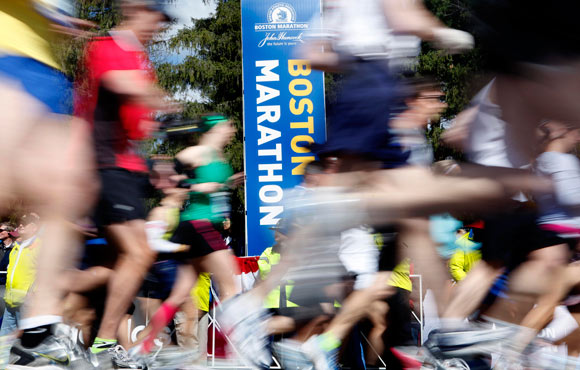
Early in my training cycle, motivation came in spurts. I realized to that point, my goal had been to qualify for Boston, and with that accomplished, my drive waned. I shifted my focus from reaching Boston to crushing Boston, and that changed everything.
It's easier to push through a hard workout—or even find the courage to start one—when you remember what you're working for. Boston deserves your best effort.
Find a
race.11. A little motivation goes a long way.
2 of 48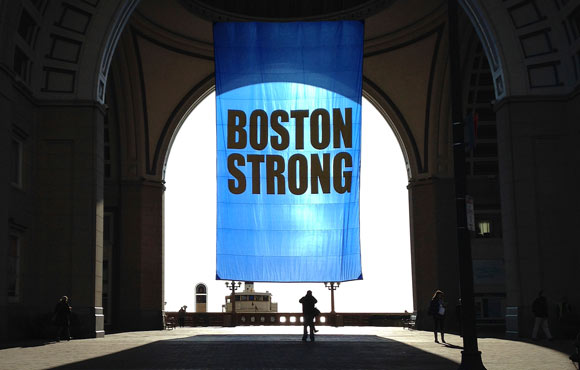
During training, I wore a Boston Strong bracelet and kept inspiring quotes on a chalkboard in my kitchen. And it's no surprise that my training ticked up a notch when a coworker suggested an office watch party, complete with big-screen live tracking of yours truly.
Find a
race.9. Every run is a chance to work on something.
3 of 48
Every training run is about more than logging miles. It's a chance to find your pace, nail your targets, experiment with nutrition or see how you perform with discomfort. Take advantage.
Find a
race.14. But do what works for you.
4 of 48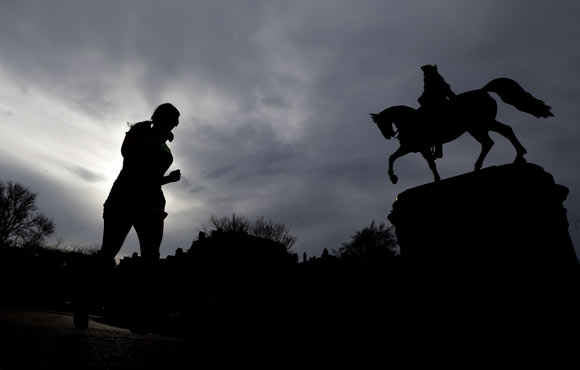
That said, I couldn't try to replicate their experiences. We may train together, but we're different runners with different bodies and different motivations. They framed my expectations, but I had to prepare myself.
Find a
race.12. A little confidence goes a long way, too.
5 of 48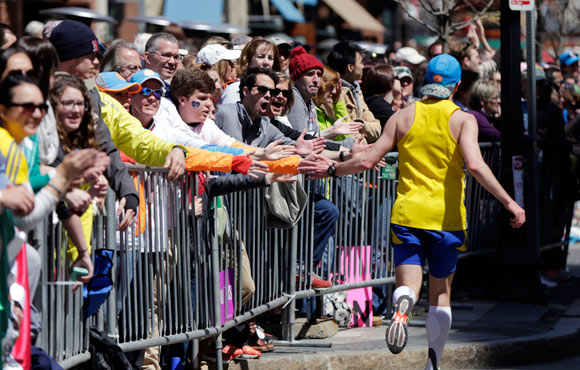
Poor weather, life events and increasing fatigue began to wear on me partway through training. But a strong tune-up race was a clear sign that the runs I dreaded doing were paying off. That boost of confidence was the jumpstart I needed.
Find a
race.13. Learn from the experience of others.
6 of 48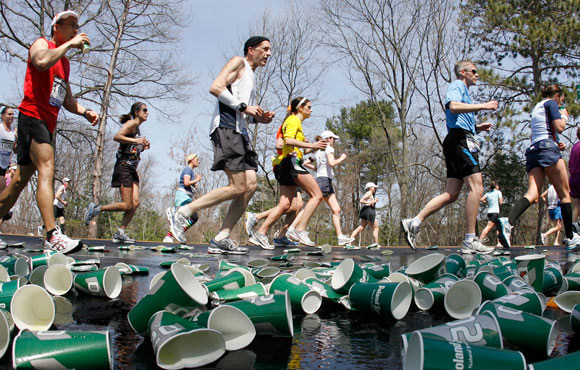
Although this was my first Boston Marathon, I felt well-prepared by teammates who'd done several. Thanks to them, very little about the logistics, course or strategy surprised me. I was free to focus on running.
Find a
race.18. So run the mile you're in.
7 of 48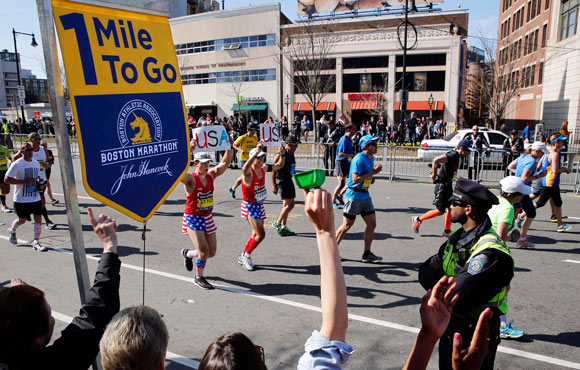
Think of it like you're running one mile, 26.2 times, and target a goal for that mile (i.e., hold your pace or catch the person in front of you). Running a single mile is manageable, even if you have to do it 26.2 times.
Find a
race.19. Just running isn't enough.
8 of 48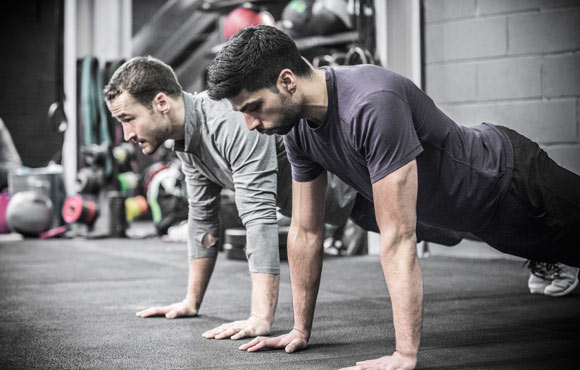
Besides running, my training regimen also included two gym sessions per week, spins to revive exhausted legs, frequent visits to the chiropractor, clean eating and careful attention to rest and recovery. Your best Boston requires the kind of fitness that comes from comprehensive training.
Find a
race.21. Use the tools you need.
9 of 48
While a GPS watch was indispensable for long runs, I hit the track with only a stopwatch. Technology can sometimes be a distraction when all you need to do is run. Use what you need for the workout you're doing. And, yes, the run still counts if you don't have proof to post online afterwards!
Find a
race.15. Run your own race.
10 of 48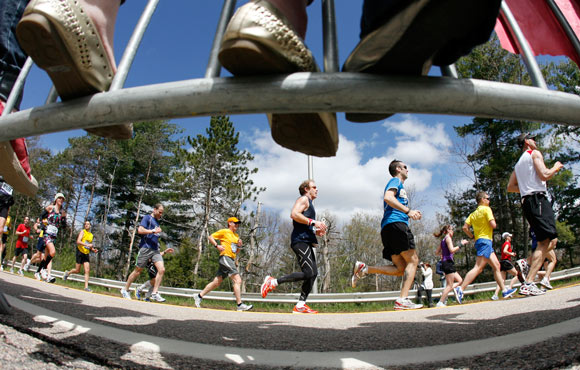
Nor could I expect to race alongside my teammates. A few of us started together, but they had their goals, and I had mine. We met up afterward, satisfied in our own results.
Find a
race.16. Patience is key.
11 of 48
Just like you need all 26.2 miles to get to the finish line, you need every bit of your training to get to the start line. In training, as in racing, go out easy. Be patient, build on your base and peak at the right time.
Find a
race.17. 26.2 miles is a long way.
12 of 48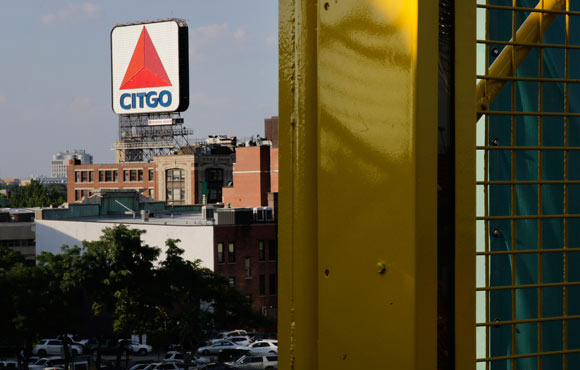
No matter how many marathons you run on your way to Boston, 26.2 miles is still a long damn way. You're not racing the runners around you, you're racing the distance. You are running through eight cities, after all.
Find a
race.20. Train with people who are faster than you.
13 of 48
Chasing faster teammates pushes you to run faster, too. It keeps you apace when you'd otherwise slow down and helps you learn to finish every run strong—plus, trying to beat your buddies serves as great motivation.
Find a
race.22. Listen to your body.
14 of 48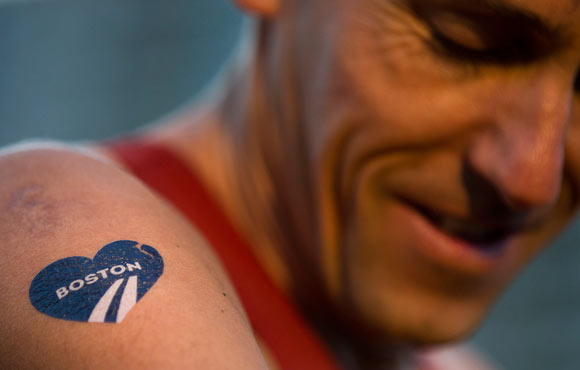
If you feel good, push harder. If you're tired, back off. If you hurt, rest. Don't be heroic. Be healthy for race day.
Find a
race.25. This isn't just another marathon.
15 of 48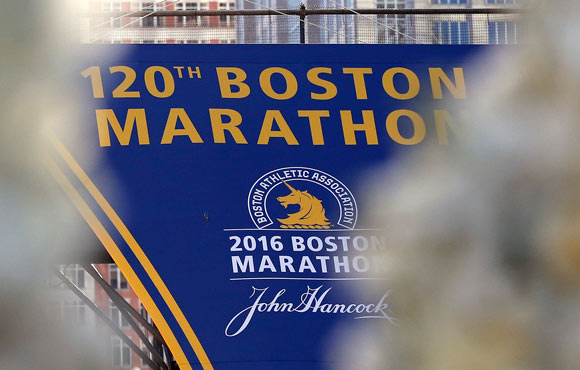
This is an internationally televised sporting event, the world's most famous footrace and the closest most of us amateurs will ever get to the pinnacle of our sport. It's a race that deserves every ounce of your best effort. I wasn't simply running a marathon; I was running a dream.
Find a
race..2. There's nothing like the last .2 miles of Boston.
16 of 48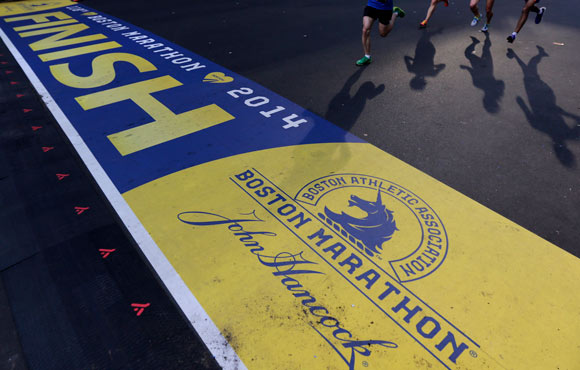
A tunnel of people line Boylston Street, all screaming in a blurry ribbon of sound and passion, urging you forward. Ahead of you, a finish line framed by an archway and festooned in remarkable history.
Try not to cry.
Find a
race.23. Push your body.
17 of 48
With every workout, I owed it to myself and my goals to dig, to push and to see what my body could do if I got out of my own way.
Find a
race.24. It's mostly mental.
18 of 48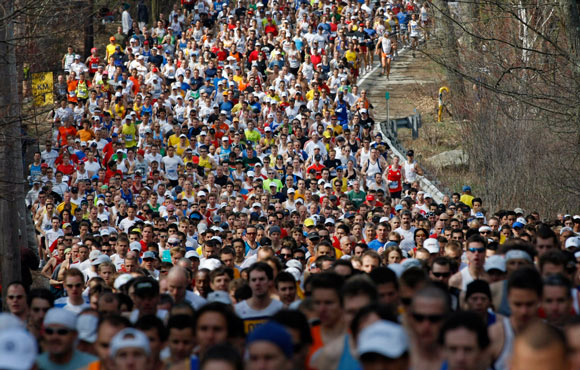
Like any marathon, Boston is a physical slog. There are hills where you don't expect them (hello, Ashland!), hordes of people (hello, Wellesley!), and enough curves to keep you honest. But even if you're in peak physical shape, the mental and emotional tax can still get to you. Train your mind as much as your body.
Find a
race.26. Running Boston changes you.
19 of 48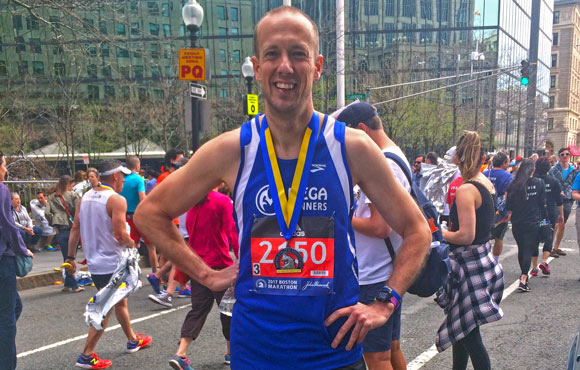
Boston is strong and resilient, and you are, too. Running this race moves your "someday" to "forever," your "I should" to "I did!" That's Boston Strong.
And, finally…
Find a
race.1. You never run alone.
21 of 48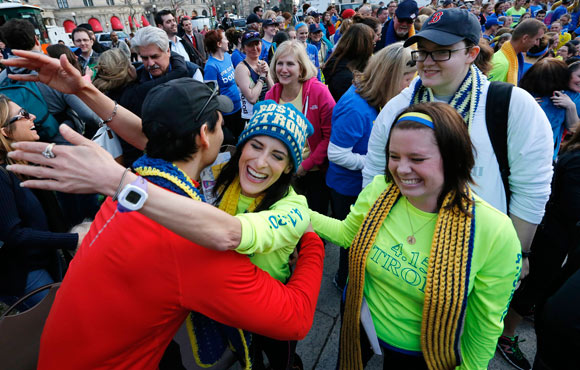
Racing Boston may be your crowning achievement, but an army of supporters got you there. In my case, my wife—a remarkable triathlete, personal trainer, half marathoner and human being—tended house when I couldn't and cooked healthy dinners to fuel me. She wrote my gym workouts (the perks of marrying your trainer!), mummified me in athletic tape and pushed me out the door when I got lazy. Calling her a supporter isn't fair; she worked as hard as I did. My training partners, most of them Boston vets, challenged and inspired me. They designed routes, mentored me, paced me and kept me focused.
You race to the finish line. Countless people get you to the start.
Find a
race.2. You have to make sacrifices.
22 of 48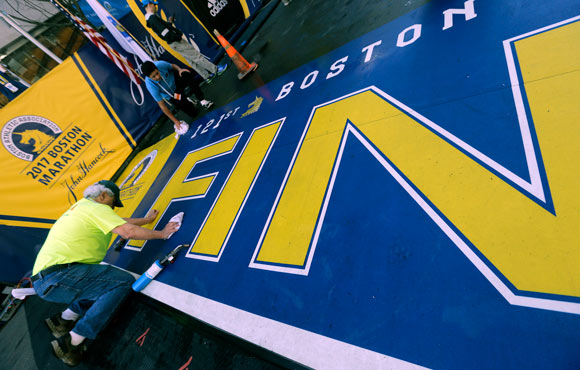
Training for Boston is all-consuming. It's like a part-time job you do in the hours around your real job; a dozen weeks of run, rest, repeat—and there's little time for much else. Once training began, I didn't go out with friends, watch my favorite shows or use my basketball season tickets. That's the nature of marathon training, magnified even more for the sport's biggest stage.
Find a
race.3. Don't look for shortcuts.
23 of 48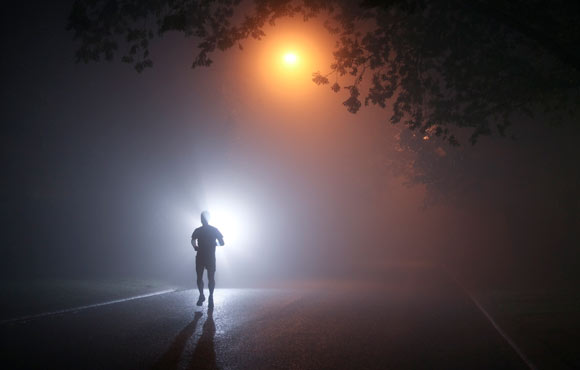
Yes, mid-week 10-milers in the dark suck. Do them anyway. Every mile of them. Stop when you're done, not when you're tired.
Find a
race.4. Preparation matters.
24 of 48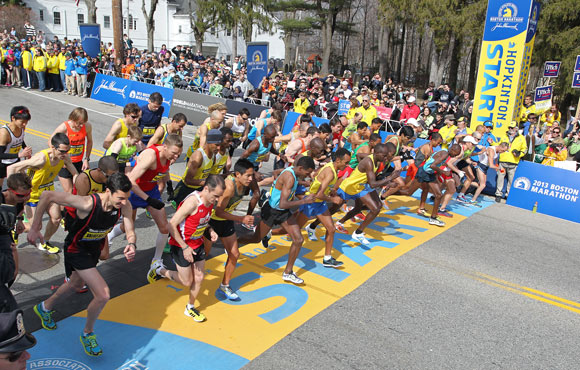
For every run, I knew the weather, the route and what I hoped to accomplish in that workout, which allowed me to focus solely on what I needed to do to succeed.
My focus on preparing also meant moving some training runs to 10 a.m. to replicate Boston's unique start time and ensure that my body knew what to do. Good preparation means there will be fewer surprises on race day.
Find a
race.5. You have to make time to train.
25 of 48
If you think, "I'll squeeze a run in sometime today," it's unlikely to happen. You have to make time for it. Put it on your calendar. Lay out your running clothes. Say no to anything that interferes.
Find a
race.6. Train the right way.
26 of 48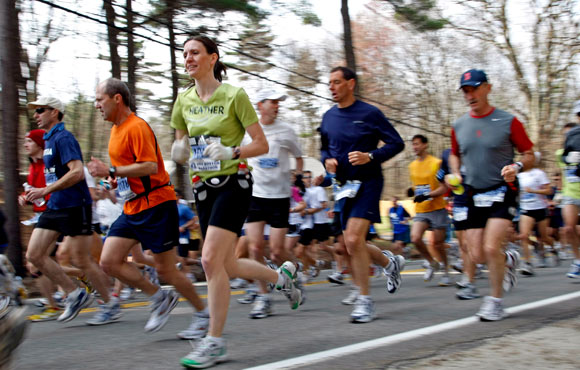
A childhood teacher once told me, "Don't practice until you do it right. Practice until you can't do it wrong." The same is true for Boston. Don't train simply to have a good race. Train so that you can't have a bad one.
Find a
race.7. Never take a run for granted.
27 of 48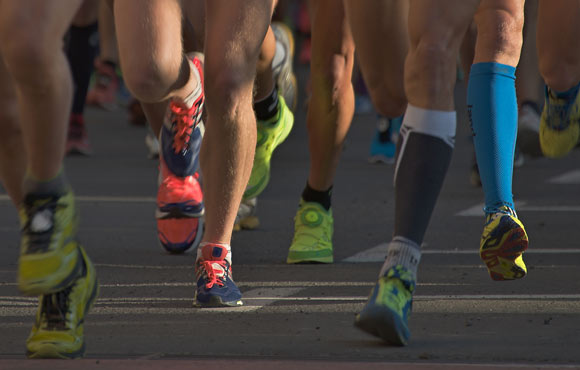
My fall racing season was derailed by injury, and the unplanned layoff made me miss running in ways I couldn't have predicted. Now (mostly) healthy, I once again feel lucky that my body allows me to do this.
Someday it won't. Today is not that day.
Find a
race.8. But sometimes, you just have to suck it up.
28 of 48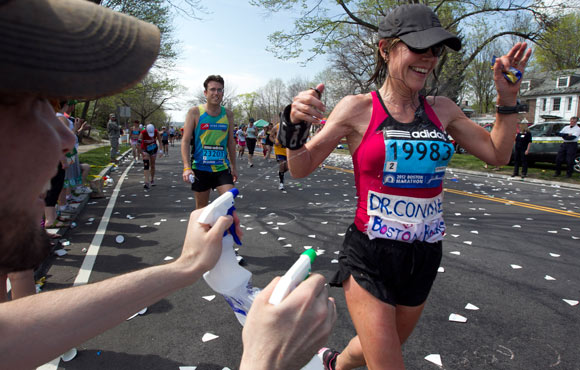
Still, there were times I just wasn't into running. I did it anyway. Plenty of runs didn't go the way I'd hoped. I finished them anyway. When darkness came early, rain came two miles in, or cramps came at the halfway point, I asked myself, "What if this happens on Heartbreak Hill?" You suck it up. You keep going.
Find a
race.9. Every run is a chance to work on something.
29 of 48
Every training run is about more than logging miles. It's a chance to find your pace, nail your targets, experiment with nutrition or see how you perform with discomfort. Take advantage.
Find a
race.10. Remember your goal.
30 of 48
Early in my training cycle, motivation came in spurts. I realized to that point, my goal had been to qualify for Boston, and with that accomplished, my drive waned. I shifted my focus from reaching Boston to crushing Boston, and that changed everything.
It's easier to push through a hard workout—or even find the courage to start one—when you remember what you're working for. Boston deserves your best effort.
Find a
race.11. A little motivation goes a long way.
31 of 48
During training, I wore a Boston Strong bracelet and kept inspiring quotes on a chalkboard in my kitchen. And it's no surprise that my training ticked up a notch when a coworker suggested an office watch party, complete with big-screen live tracking of yours truly.
Find a
race.12. A little confidence goes a long way, too.
32 of 48
Poor weather, life events and increasing fatigue began to wear on me partway through training. But a strong tune-up race was a clear sign that the runs I dreaded doing were paying off. That boost of confidence was the jumpstart I needed.
Find a
race.13. Learn from the experience of others.
33 of 48
Although this was my first Boston Marathon, I felt well-prepared by teammates who'd done several. Thanks to them, very little about the logistics, course or strategy surprised me. I was free to focus on running.
Find a
race.14. But do what works for you.
34 of 48
That said, I couldn't try to replicate their experiences. We may train together, but we're different runners with different bodies and different motivations. They framed my expectations, but I had to prepare myself.
Find a
race.15. Run your own race.
35 of 48
Nor could I expect to race alongside my teammates. A few of us started together, but they had their goals, and I had mine. We met up afterward, satisfied in our own results.
Find a
race.16. Patience is key.
36 of 48
Just like you need all 26.2 miles to get to the finish line, you need every bit of your training to get to the start line. In training, as in racing, go out easy. Be patient, build on your base and peak at the right time.
Find a
race.17. 26.2 miles is a long way.
37 of 48
No matter how many marathons you run on your way to Boston, 26.2 miles is still a long damn way. You're not racing the runners around you, you're racing the distance. You are running through eight cities, after all.
Find a
race.18. So run the mile you're in.
38 of 48
Think of it like you're running one mile, 26.2 times, and target a goal for that mile (i.e., hold your pace or catch the person in front of you). Running a single mile is manageable, even if you have to do it 26.2 times.
Find a
race.19. Just running isn't enough.
39 of 48
Besides running, my training regimen also included two gym sessions per week, spins to revive exhausted legs, frequent visits to the chiropractor, clean eating and careful attention to rest and recovery. Your best Boston requires the kind of fitness that comes from comprehensive training.
Find a
race.20. Train with people who are faster than you.
40 of 48
Chasing faster teammates pushes you to run faster, too. It keeps you apace when you'd otherwise slow down and helps you learn to finish every run strong—plus, trying to beat your buddies serves as great motivation.
Find a
race.21. Use the tools you need.
41 of 48
While a GPS watch was indispensable for long runs, I hit the track with only a stopwatch. Technology can sometimes be a distraction when all you need to do is run. Use what you need for the workout you're doing. And, yes, the run still counts if you don't have proof to post online afterwards!
Find a
race.22. Listen to your body.
42 of 48
If you feel good, push harder. If you're tired, back off. If you hurt, rest. Don't be heroic. Be healthy for race day.
Find a
race.23. Push your body.
43 of 48
With every workout, I owed it to myself and my goals to dig, to push and to see what my body could do if I got out of my own way.
Find a
race.24. It's mostly mental.
44 of 48
Like any marathon, Boston is a physical slog. There are hills where you don't expect them (hello, Ashland!), hordes of people (hello, Wellesley!), and enough curves to keep you honest. But even if you're in peak physical shape, the mental and emotional tax can still get to you. Train your mind as much as your body.
Find a
race.25. This isn't just another marathon.
45 of 48
This is an internationally televised sporting event, the world's most famous footrace and the closest most of us amateurs will ever get to the pinnacle of our sport. It's a race that deserves every ounce of your best effort. I wasn't simply running a marathon; I was running a dream.
Find a
race.26. Running Boston changes you.
46 of 48
Boston is strong and resilient, and you are, too. Running this race moves your "someday" to "forever," your "I should" to "I did!" That's Boston Strong.
And, finally…
Find a
race..2. There's nothing like the last .2 miles of Boston.
47 of 48
A tunnel of people line Boylston Street, all screaming in a blurry ribbon of sound and passion, urging you forward. Ahead of you, a finish line framed by an archway and festooned in remarkable history.
Try not to cry.
Find a
race.Get ACTIVE on the Go


Couch to 5K®
The best way to get new runners off the couch and across the finish line of their first 5K.
Available for iOS | Android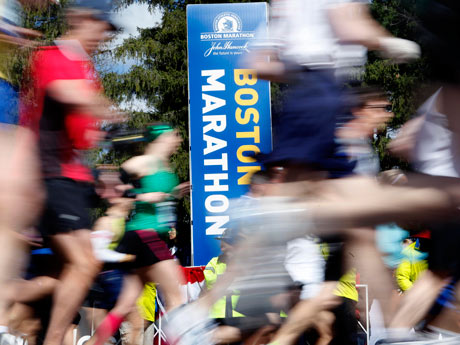
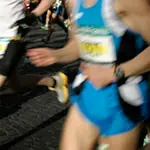

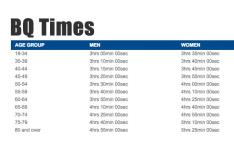
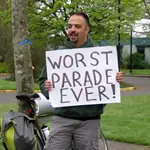

Discuss This Article